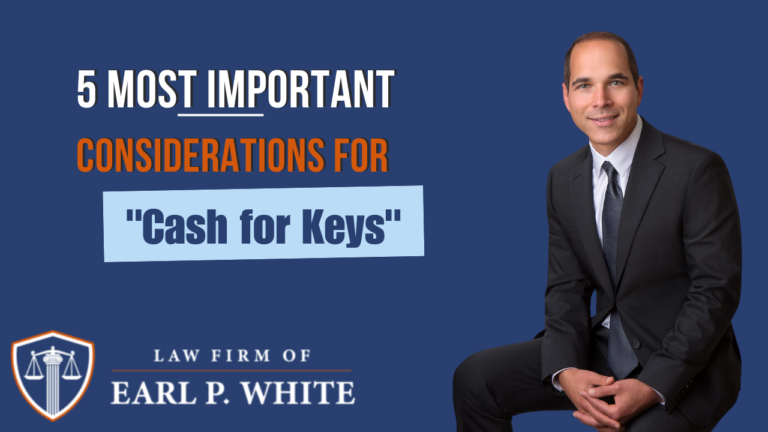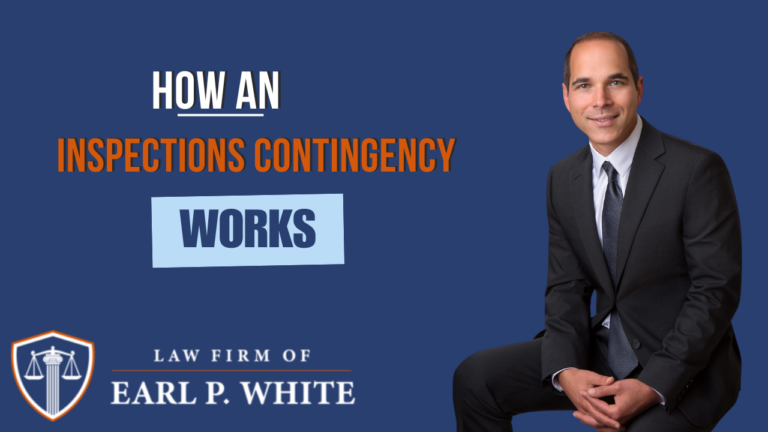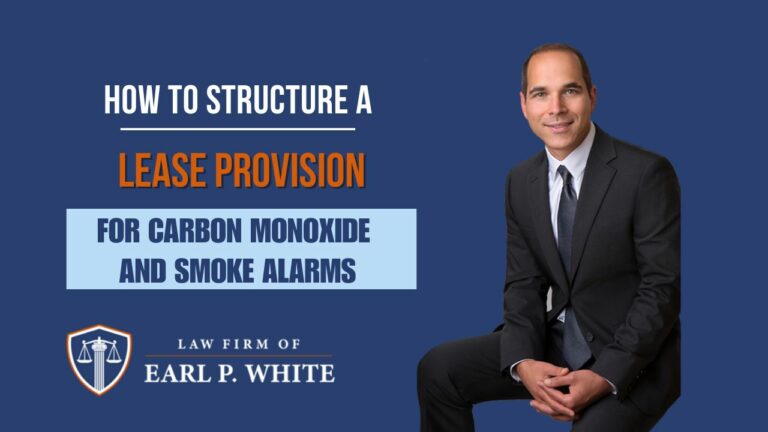Every contract imposes upon each party a duty of good faith and fair dealing in its performance and its enforcement.
Second Restatement of Contracts, Section 205.
Deposits in real estate transactions in New Jersey demonstrate the “good faith” and seriousness of the buyer. Parties may refer to deposits as an ‘additional deposit,’ ‘earnest deposit,’ or ‘good faith deposit.’
The seller desires a high deposit to incentive the buyer to comply with the contract. The buyer, to the contrary, prefers a small deposit to reduce financial penalty and risk.
This article provides an overview of deposit contract provisions, including:
- What is a real estate deposit?
- Key elements of a deposit contract provision.
- Considerations in negotiating the deposit.
- Recommendations from a legal perspective.
Key Points
| Topic | Summary |
|---|---|
| What is a Deposit? | Good faith payment by buyer; typically held in escrow; credited toward closing costs; may be refundable or forfeited depending on conditions. |
| Key Deposit Provisions | Amount, timeline for payment, deposit holder, and conditions for release. |
| Negotiation Factors | Leverage based on market conditions impacts deposit terms; buyer vs. seller interests are opposite. |
| Deposit Amount Guidelines | Negotiable but typically 2.5%-10% of purchase price; consider size of downpayment. |
| Who Should Hold the Deposit? | Title companies recommended due to cybersecurity and efficiency. |
| Release of Deposit | Common contingencies: inspection, mortgage approval, appraisal, clear title, and certificate of occupancy. |
What Is a Deposit in a Real Estate Contract?
A deposit is a good faith payment made by the buyer to show commitment to the transaction. This deposit is:
- Typically due within 1–10 days after contract signing;
- Held in escrow by a neutral party such as an attorney, title company, or escrow agent;
- Credited toward the buyer’s down payment and closing costs;
- Released based on conditions stated in the contract.
The deposit is not an automatic penalty for breaching the purchase and sale contract. The money damages a seller may entitled to if buyer breaches the contract could be more or less than the deposit.
See Kutzin v. Pirnie, 124 N.J. 500, 512 (1991) (“[Buyers] refusal to proceed constituted a breach of contract entitling the [Sellers] to recover compensatory damages . . . . We also hold that the [Sellers] cannot retain the entire deposit as damages . . . To allow retention of the entire deposit would unjustly enrich the [Sellers] and would penalize the [Buyers] contrary to the policy behind our law of contracts.”).
Parties sometimes treat a deposit as a penalty by defining the deposit as “Liquidated Damages” to the Seller should the buyer default. However, even if the parties agree the deposit is liquidated damages, New Jersey courts may not enforce this provision if manifestly unfair.
See Seven Star Props. v. Edgewater 880 Assocs., No. A-0392-19T4 (App. Div. Oct. 8, 2020) (“Notwithstanding the parties’ acknowledgement in the original agreement that a return of the full amount of the deposit as liquidated damages would be reasonable, New Jersey case law requires such damages to be objectively reasonable.”)
Escrow agents normally return deposits to a buyer upon proper termination of the contract, such as after property inspection, mortgage denial, or low appraisal. Deposits are transferred to the seller upon a successful closing.
Key Elements of Deposit Provisions
Contract provisions for deposits should address the following:Every contract provision dealing with deposits should clearly address the following:
- Deposit Amount. Specify the amount and whether it’s made in one or two stages (e.g., initial and second deposit after due diligence).
- Timeline for Payment. Common timelines are within 3 to 10 days from the date of contract execution.
- Who Holds the Deposit. The deposit holder (sometimes called “escrow agent” or “escrow holder”) may be the buyer’s or seller’s attorney, a title company, or licensed escrow agent.
- Conditions for Release. Identify how the deposit is released, such as at closing (where it is applied towards buyer’s payments), upon contract termination, and protocol where there is a dispute as to buyer’s contract compliance.
See a sample deposit provision:
Deposit: Buyer shall deliver a deposit of $10,000.00 (“Deposit”) to the Title Company (the “Escrow Agent”) within seven (7) calendar days from the Effective Date of this Agreement. The Deposit shall be held by the Escrow Agent in a non-interest-bearing escrow account, subject to the terms of this Agreement. In the event of a proper termination of this Agreement pursuant to its terms, the Deposit shall be released by the Escrow Agent within three (3) business days following receipt of written notice and documentation evidencing the valid termination, provided there is no dispute between the parties regarding entitlement to the Deposit. All disbursements of the Deposit shall be made in accordance with the applicable provisions of this Agreement and the instructions of the parties hereto. The Escrow Agent shall not be liable for any action taken in good faith pursuant to the terms of this Agreement.
Considerations in Deposit Negotiation
Buyers and sellers have adverse interests regarding the timing, amount, and holder of deposits. Deals sometimes fall apart on deposits because one of the parties perceives there to be a lack of “good faith” from the other.
Below are considerations for negotiating the deposit in real estate contracts.
Leverage
The party with the most leverage often dictates the deposit terms.
Seller’s market with limited inventory? Buyers will increase the size and speed of the deposit to outshine competing offers.
In a buyer’s market, purchasers have options and will not overextend because another deal with less risk will come along.
How Much Should the Deposit Be?
- Sellers prefer a larger deposit to show buyer commitment and minimize the risk of contract breach.
- Buyers prefer a smaller deposit to reduce liability in the event of default (or amount at issue should a seller fail to agree to release.
In my market of New Jersey, there is no fixed standard and the deposit amount is entirely negotiable.
In my experience handling thousands of real estate transactions, I suggest two “guidelines”: (i) half the down-payment; (ii) 2.5 to 10% of the purchase price. This structure limits the overall liability of the buyer based on real cash in escrow and also demonstrates “good faith” by factoring in the amount the buyer must bring to close.
Who Should Hold the Deposit?
- Sellers may favor their attorney holding the funds for added assurance.
- Buyers typically prefer their own attorney or a title company they trust.
I personally recommend title companies should hold the deposit in New Jersey.
Title companies routinely transfer large sums of money, making them more suitable than law firms (reducing risk and time). Title companies also carry crime-fraud and cyber security insurances. Protection against errors and criminal activity is more important than vague suspicions that an attorney for the opposing party will behave unethically.
Grounds for Release of the Deposit
The common contingencies for return of the deposit in New Jersey are:
- Home inspection
- Mortgage financing
- Appraisal results
- Clear title delivery without liens
- Certificate of Occupancy
Buyers seeks broad rights to recover their deposit, whiile sellers aim to narrow these rights to prevent last-minute cancellations. In competitive markets, sellers may ask buyers to waive contingencies or commit to deposit forfeiture under certain conditions—adding risk for buyers but strengthening the seller’s position.
Stay ahead with our free newsletter: The Real Estate Law Newsletter – your source for real estate law news.
Essential updates and insights direct to you. Impress clients and colleagues with trending news. Sharpen expertise. Stay legally compliant. Access free legal forms. Don’t miss out – join today!










